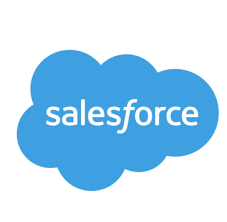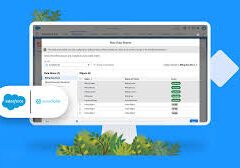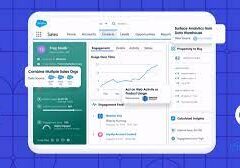AI-driven propensity scores take an existing data model and improve its predictions, speed, and analysis with AI. Salesforce AI Propensity Scores in CRM: In CRM, a propensity score is the model’s probabilistic estimate of a customer performing a specific action. A propensity model is a mathematical formula that takes into account all of the known factors that are associated with conversion. The model then uses this information to estimate the likelihood that a given lead will convert to a customer. In super geeky terms, The propensity score is the probability of a unit (e.g., person, classroom, school) being assigned to a particular treatment given a set of observed covariates.
How do you calculate propensity score?
Propensity scores are generally calculated using one of two methods: a) Logistic regression or b) Classification and Regression Tree Analysis. a) Logistic regression: This is the most used method for estimating propensity scores. It is a model used to predict the probability that an event occurs.
Why do we need propensity score?
Propensity score analysis (PSA) arose as a way to achieve exchangeability between exposed and unexposed groups in observational studies without relying on traditional model building. Exchangeability is critical to our causal inference.
Get Accurate Predictions by Defining the Target Variable
Defining the target variable is crucial for accurate model predictions. Your model needs a primary focus for analysis and predictions. Scoring models uncover relationships between features and the target variable, providing insights on how to maximize or minimize this variable. For example, to predict the likelihood of opportunities converting into accounts, define a target variable that indicates this conversion. You can also apply custom logic to refine this target variable further.
Make Informed Business Decisions Based on Historical Trends
Generate predictions for specific periods to make informed business decisions and maximize revenue based on historical trends. For example, to determine which accounts sales representatives should focus on in the next 30 days, select a 30-day prediction duration. Then, use CRM Analytics datasets with historical data to identify revenue trends from accounts in the past 30 days.
Effortlessly Build and Deploy Propensity Models
Utilize the Scoring Framework to build and deploy generic propensity models for various industries without coding. Configure and deploy Einstein Discovery models through the AI Accelerator, which displays predictions and Einstein Next Best Action recommendations on record pages using the AI Accelerator—Einstein Predictions & Recommendations component.
Scoring Framework Features
- Click-Based Model Deployment: Build and deploy propensity models using clicks instead of code, making it easy to develop models that predict crucial business aspects.
- Propensity Score Matching: Use this technique to balance treatment groups and establish comparability, enabling conclusions about the causal impact of a treatment using observational data.
AI Accelerator and Scoring Framework Integration
Get real-time predictions across multiple industries by integrating AI Accelerator. Build generic propensity models without writing code using the Scoring Framework. Configure and deploy Einstein Discovery models, and showcase predictions and Next Best Action recommendations on record pages.
AI Accelerator Functionality
- Ease of Use: Quickly create and configure machine learning use cases.
- Customization: Adjust default configurations of autogenerated use cases or select specific machine learning models and feature extractors.
- Real-Time Insights: Save computed features and prediction results, displaying them on record pages via Lightning App Builder components.
Salesforce Einstein’s Role
Salesforce Einstein integrates robust AI technologies within the Lightning Platform, offering administrators and developers a comprehensive set of platform services to build smarter apps and customize AI for their businesses.
Scoring Framework and CRM Analytics
Use the Scoring Framework, based on CRM Analytics, to quickly build and deploy propensity models for various industries. Define template configurations, create CRM Analytics apps, and develop Einstein Discovery models and recipes effortlessly.
Validating Input Features and Prediction Accuracy
Train your model to validate input features and prediction accuracy. Then, deploy the model based on these predictions.
Predictions Based on Standard or Custom Objects
Build predictive models using standard or custom objects, enhancing business processes with smarter and more predictive capabilities.
Making Business Decisions from Historical Trends
Generate predictions based on historical trends to help make informed business decisions aimed at maximizing revenue.
Enhancing Analysis with Additional Input Features
Improve data analysis by incorporating features from CRM Analytics datasets along with object data.
Focused Predictions with Defined Target Variables
Improve prediction accuracy by defining the primary focus variable for your model. Customize input features to ensure valuable and accurate predictions for your use case.
Targeted Predictions with Data Subsets
Enhance prediction relevance by focusing on specific data subsets using filter conditions.
Contextual Predictions by Storing in Records
Store predictions in records to view them within the context of your use case, facilitating informed decision-making.
Real-Time Predictions with AI Accelerator
Integrate the Scoring Framework with AI Accelerator for real-time predictions, suggestions, and insights.
Template Configuration and Data Requirements
Ensure data requirements are met while configuring templates, confirming that there are enough records in the dataset.
Quick Access to CRM Analytics and AI Accelerator
Easily access CRM Analytics apps or AI Accelerator use cases by clicking the relevant button on the template configuration card.
Handling Template Configuration and AI Accelerator Issues
Retry template configuration activation or deactivation if unsuccessful. Similarly, retry creating or deleting AI Accelerator use cases as needed.
Exploring New Metadata Types and Tooling API Objects
Explore new metadata types and use the Tooling API to work with Scoring Framework setup objects, enhancing your capabilities within the Scoring Framework.
🔔🔔 Follow us on LinkedIn 🔔🔔
Content updated April 2024.













